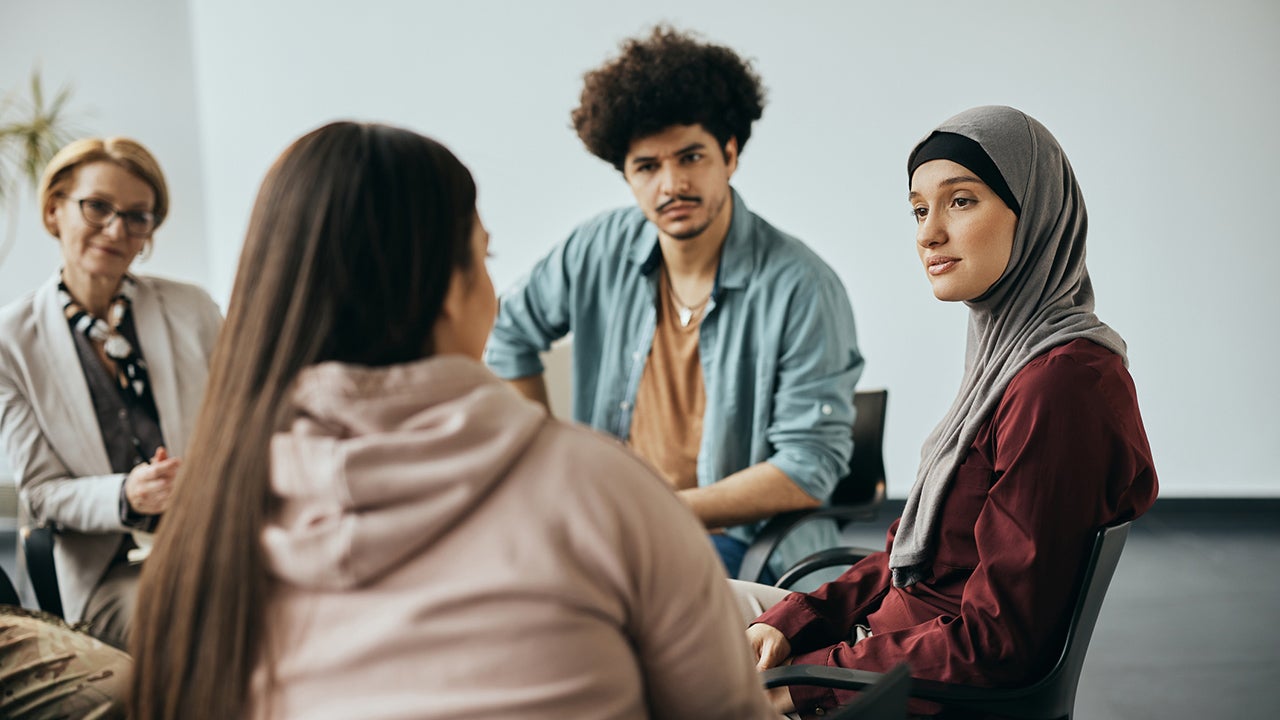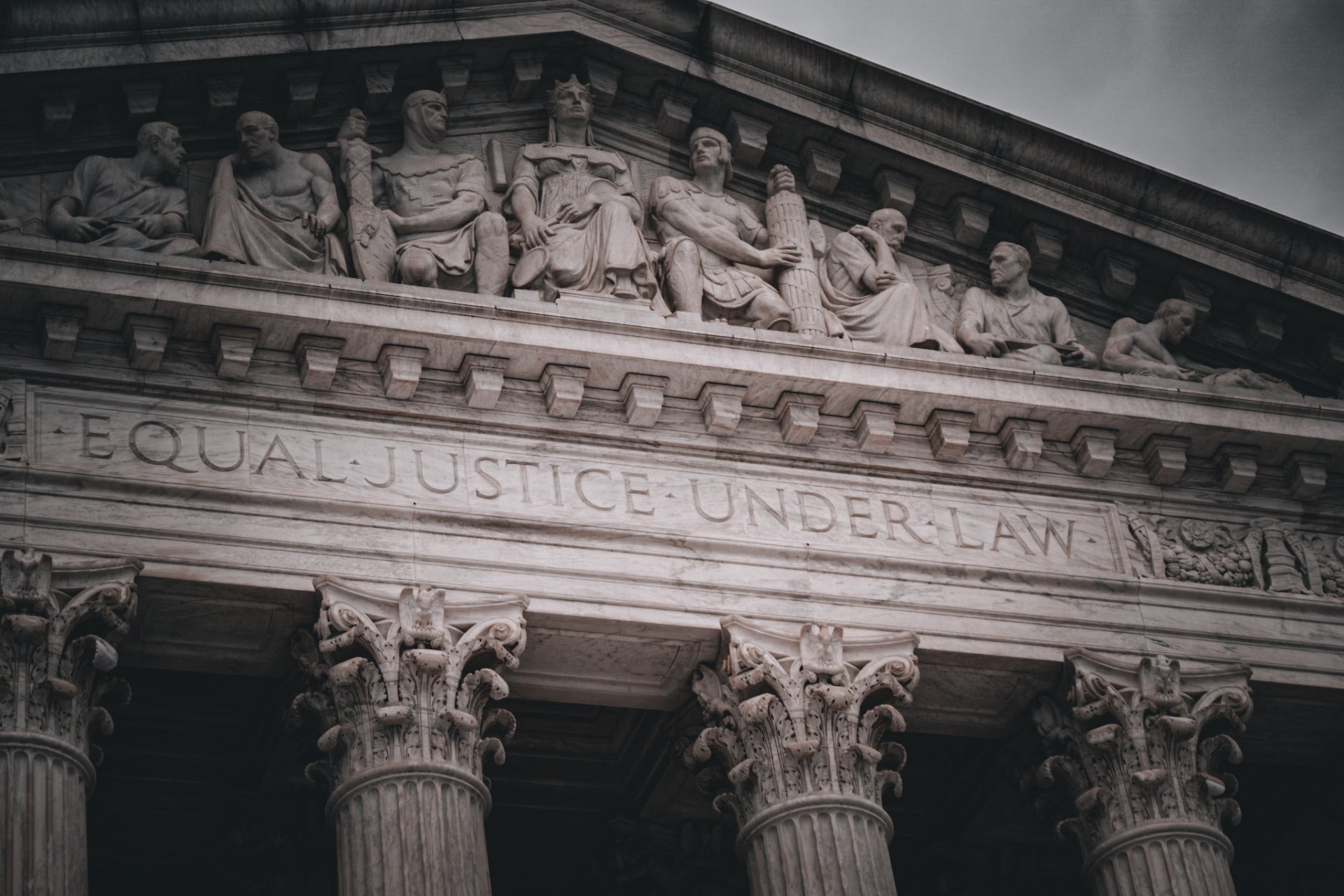Changemakers—citizens and grantmaking foundations, nonprofits and social enterprises, businesses, and government—have the power to solve society’s shared problems and steward our common resources. They do it best when they do it together. The Program on Philanthropy and Social Innovation (PSI) helps strengthen these social actors and their capacity to work together. It focuses on this nexus of an active citizenry, a resilient society, and a robust democracy and considers the central role of trust. The program gathers changemakers to share ideas, collaborate, and achieve new heights for our nation.
Jane Wales is PSI’s executive director and a vice president at the Aspen Institute. She co-chairs the Generosity Commission, a blue-ribbon panel that seeks to understand how everyday volunteers and givers reimagine philanthropy, volunteerism, and community—and, in the process, build trust. In the following Q&A, Wales reflects on the role we each can play.
Why does trust matter for American democracy?
In 1990, an Egyptian Air Force commander told me he’d learned everything he needed to know about America at a baseball game. There he saw a vendor selling hot dogs. A fan in the middle of a row called out his order and handed $5 down the row. Perfect strangers formed a spontaneous bucket brigade to pass the bill—and no one pocketed the fiver! The general was equally astounded when those same fans passed back the hot dog—and no one took a bite! “You can build all the bombers and missiles you like,” he said, “but nothing will keep your country strong like the trust you have in the system you built and the trust you have in each other.”
The general was right. Trust is the societal glue on which our democracy depends. Yet trust is at an all-time low.
The current trust deficit corresponds with an almost 50-year decline in social “connectedness” and the social capital Americans built. We may argue over the sources of social isolation but among them is the rapid, wrenching change produced by three unstoppable trends: the information revolution, globalization, and demographic change. The information revolution has decentralized decision-making and authority. Globalization has redistributed and concentrated wealth. And demographic change has prompted fears about the loss of majority status.
Research has shown declining levels of public trust in US institutions. How are you seeing this play out, and what role does the social sector play in rebuilding trust in our society?
Critical sources for connection and community are voluntary associations, nonprofit organizations, and those that support them—what we refer to as the “social sector.” They create spaces where people gather to heal and celebrate. They provide forums for collective decision-making and action to solve shared problems or steward shared resources. This is where people can mobilize literal and figurative bucket brigades. The active citizenry entailed builds connectedness and trust.
“Everyday givers” support these community-based efforts—they put coins in the collection plate or Salvation Army kettle, support a local women’s shelter, respond to the blood drive, or volunteer for the PTA or fire brigade. But their numbers are shrinking. From 2000 to 2016, 20 million giving families dropped out of giving. Volunteerism levels hit a 15-year low, dropping below 25% in 2015.
As social ties weakened, the social sector proved to be a canary in the coal mine. Since the 1990s, year over year, more funds have been given—but by fewer givers. And year over year, more volunteer hours are donated—but by fewer volunteers. If the former signaled the concentration of wealth, might the latter reflect a corresponding concentration of agency? Is there a sense among everyday givers that they cannot make a difference in our society? And what does that mean for our democracy?
What are some ways your work is helping rebuild confidence in institutions and individuals?
Giving USA and the Program on Philanthropy and Social Innovation helped build and lead the Generosity Commission to better understand trends in giving and volunteering, and the impact of those trends on our society, our polity, and our sense of community. The Commission has supported research on the impact of giving trends on community-based nonprofits. With #GivingTuesday, it has sought to capture data on direct giving to neighbors and strangers, in person or online, and the formation of thousands of volunteer-led “mutual aid” networks that launched as NGOs experienced pandemic-related closures. Most recently, the Commission released a study demonstrating the relationship among individual social connectedness, broader societal resilience, and democratic functioning. Early findings show that first-time volunteers are among the citizens most likely to register and vote for the first time.
While everyday givers build community trust, grantmaking foundations partner with governments to “get stuff done.” These partnerships are among the philanthropic investments in democratic functioning—and public trust. The leaders of many of these foundation share successes and failures as part of PSI’s Aspen Philanthropy Group.
When former President Trump prioritized the development of a Covid-19 vaccine, the US government leveraged an earlier Gates Foundation $55M investment in pharmaceuticals developing mRNA technology originally targeting HIV. With the onset of the coronavirus pandemic, the government and the foundation provided millions in grants. And once the FDA granted early-use authorization, nonprofit hospitals distributed the vaccines, preventing millions of deaths. The Intersector Project at PSI analyzes activities like these. It captures the lessons of effective cross-sector partnerships and notes the logistical or political challenges to overcome. For example, such as those faced when the Rockefeller and Gates Foundations partnered with governments and the Vaccine Initiative, a global NGO, to assure the regional production and equitable distribution of the vaccine globally.
How can the American people help break the cycle of distrust in our society?
Downward trends in everyday giving and volunteering signal a decline in trust. But their reversal offers the solution. Every person can choose to engage according to their circumstances and passions. You may give to or volunteer for a nonprofit. You might join an informal volunteer mutual aid network to help neighbors and strangers in need. Or you might attend a town hall meeting and listen respectfully to those with whom you disagree.
Each is an example of what an American can do to break this cycle. Research tells us that an active citizenry builds ties among us—ties that bind. These modest but important contributions help build a trusting society and a robust democracy.
Ours is a unique form of self-governance in which the public, private and social sectors each play a role. The pandemic provided such an opportunity—as have a range of challenges that no single sector can solve on its own. The Egyptian commander got it right. This is the system America has built—our belief in it is a source of strength. And each of us can play a powerful role.


